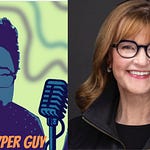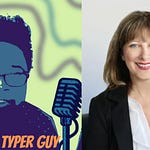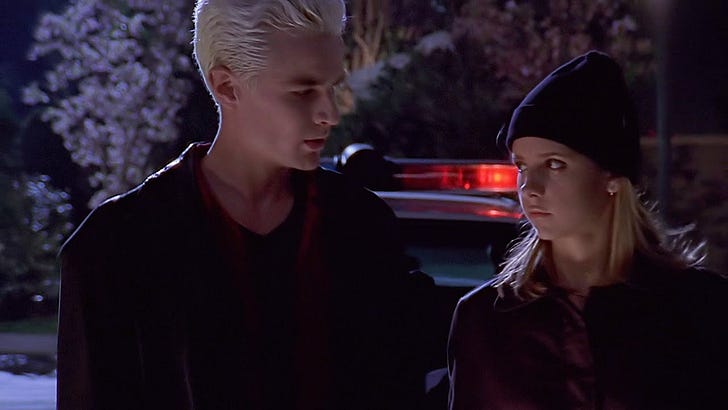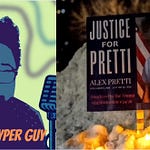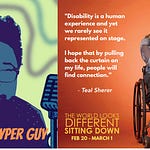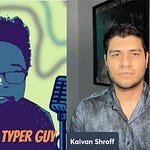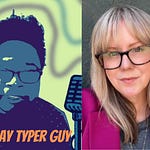Joining me today is Mirella Stoyanova, a Seattle-based writer, therapist and international adoptee from Bulgaria of Bulgarian and Iraqi origin. She discusses her experience growing up in a less-than-diverse environment and how she’s worked to reclaim her identity.
Edited excerpts from our conversation:
SER: You had an article published in Business Insider called, “I was adopted as a child by an American family. They still can’t pronounce my name correctly.” So, can you tell us a little bit about that?
MIRELLA: Certainly. The article itself, I was inspired by a recent trip I took with my family. And on that trip, as a family, we’re sitting around the table and a topic that often comes up is how to say my name, how to pronounce it correctly. And I am 36, so that happens to be half of my life. So, I wrote the piece in part to give myself an outlet for, I think, what was honest exasperation, but also to draw attention to dynamics that might otherwise go unseen within the adoptee experience and particularly the cross-cultural adoptee experience.
(“Mirella” is pronounced “MIR-ella.”)
SER: According to the article, you do go to a lot of effort to help folks pronounce your name correctly.
MIRELLA: I think that names are a reflection of identity. And within a family context, when we’re talking about saying a name right, we’re talking about the ability to see someone for who they are, not who you want them to be.
SER: And you talked about “reclaiming your name,” because I think the last name you’re using now is not one you’ve always used.
MIRELLA: It’s an interesting story because I’m adopted from Bulgaria, and Stoyanova is a name that belonged to my family, my birth family. When I got married almost three years ago, I was really reluctant to change my name. I sort of went through that, you know, “Ah, patriarchal society!” Of course, now with everything going on in the news, it’s hard to ignore the implications of a name change.
But having already been adopted and changed my name once, I was really reluctant to do it again. And when I did change my name, I started to think about how I could honor the complexity of my identity. Part of that was reclaiming the name I had prior to my adoption. I ended up going to the courthouse on the [30th] anniversary of my arrival to the United States to reclaim my name.
It’s not often people will stand up and say what that moment in their life symbolizes, but I actually stood up and I told the judge, “This actually happens to be the 30th anniversary of my arrival to the United States, and I am reclaiming a part of my identity that’s significant to me.
SER: You were very young when you came to the states and was adopted, but from things I’ve read, you do seem to have some memory of the time. Could you speak a bit about that?
MIRELLA: I came to the United States in 1993 from Bulgaria. I was five years old. So I do remember quite a lot in part because when you make a shift like that and when you make a large transition, I think at least for me, I held on to those memories in order to cope with the difficulty of transitioning to a new family, new language, new culture, everything.
A year and a half before, what precipitated the adoption was I had witnessed the murder-suicide of my birth parents at age three and was being cared for by my grandmother who lived in our home with us. And she happened to be dying of cancer and had to find a way forward for me that she would not be a part of. 1989 was the fall of the Soviet Union in Bulgaria. And there had been, I think that year, an attempt to expel the Turkish minority from the country and it had failed but there was still a lot of islamophobia and racial prejudice against people who were darker and there has been for a long time, and my grandmother had this little girl with an Afro and big eyebrows and she had to figure out what was going to happen to her.
She went through a period of months trying to figure it out and eventually chose an American family for me to be adopted into, a year and a half after my parents died. So I came to the United States. I was raised in a white family community about 35 minutes outside of Seattle.
SER: I think most people will know that Seattle’s …I wouldn’t say notoriously … white.
MIRELLA: And in the ‘90s, it was even whiter.
I think in the United States, we think and talk about race, and rightfully so, in terms of the legacy of slavery. The thing that is often not on our radar is that there are colonized people all over the world, right? Or maybe it’s on our radar, but we don't think about prejudice on a global scale. And in Bulgaria, as in many places in Europe, there exists, racial prejudice across lines that are drawn differently. I might not even be considered Bulgarian. I might be considered an outsider and in the times that I've visited, I am not claimed by that culture, although I claim it myself. So yeah, it’s a complicated identity, but it’s one that for me, I’ve worked hard to claim for myself.
Please check out the full podcast interview. You can connect with Mirella on her website and Instagram.






